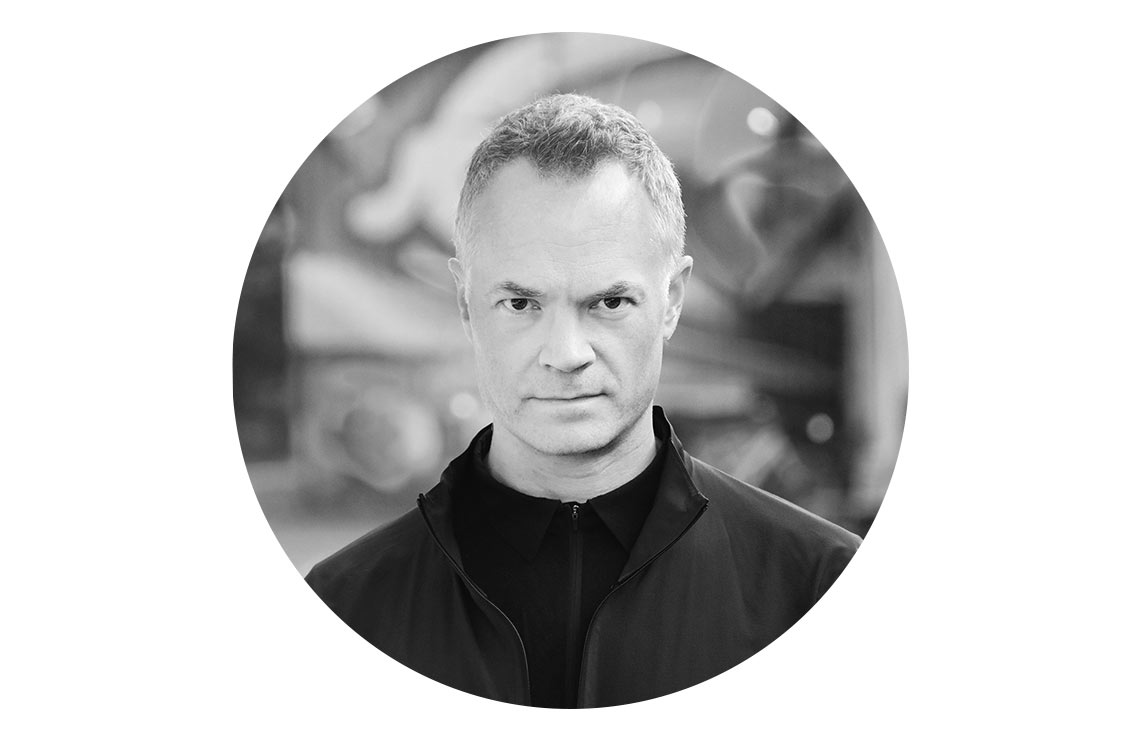
Victor Galaz is deputy director and associate professor at Stockholm Resilience Center, and a writer for Svenska Dagbladet.
“Algorithms can encourage empathy and connections”
Could AI make us care about the climate? Or will it just bring a flood of auto-generated disinformation? It’s Victor Galaz’s job to find out.
Next year, Routledge will publish Victor Galaz’s book Dark Machines, an essay on the impact of artificial intelligence in a future of climate change. As deputy director and associate professor at Stockholm Resilience Center (and a writer for Svenska Dagbladet), he spends a lot of time pondering resilience and sustainability. Over Zoom, from his home in Stockholm, he explains what makes for a resilient society.
“It’s a society with the capacity to predict, adapt to and recover from shocks. In that process, it also innovates and renews itself. For instance, the war in Ukraine and the pandemic pose huge challenges for global food systems, energy systems and so on. However, we shouldn’t strive to get back to normal from this point, because we need to change these things anyway. Our societies need to evolve.”
How resilient is our society?
“Different societies have different levels of resilience. A country with weak public institutions and little money is always more vulnerable than a country like Sweden. However, one difference between the world today and the world twenty years ago is that we’re much more global and interlinked. A disturbance in one part of the world rapidly spreads to other parts.”
Do we have the resilience needed for future challenges?
“We can never take that for granted. Climate change and loss of biological diversity pose massive challenges. Over time, our drive to optimise and maximise has created huge values for a lot of people. But we have never lived in a time of climate change like this one, and we simply don’t know yet if we can handle it.”
In his upcoming book, Victor Galaz explores how AI is cause for both hope and concern among climate scientists. He talks of a “silent tsunami” of AI seeping into
all aspects of our society – more or less unnoticed.
Is AI a threat in itself or is it a matter of who controls it?
“Technologies are not neutral. Some AI systems are explicitly designed to harm us, for instance through surveillance and discrimination of ethnic minorities. That said, it is a matter of control and of fair distribution of the enormous gains these new technologies bring.”
Regulating new technologies is a notoriously tough task. As the British academic and writer David Collingridge once pointed out: “When change is easy, the need for it cannot be foreseen; when the need for change is apparent, change has become expensive, difficult and time consuming.”
The challenge, then, is foreseeing the future. If we fail, AI will bring unintended and unwanted consequences, according to Victor Galaz.
”There are some direct climate effects of AI, such as energy costs, social costs and environmental impacts. We are coming to terms with these. But then there are indirect, long-term effects that are even bigger, and much harder to manage. Take digitalisation of agriculture, for instance. As we use technologies to optimise and maximise food production, we get enormous monocultures, as these are the most efficient, and we see the end of small-scale farming, loss of local job opportunities and more vulnerable ecosystems. And these are just some examples. Another is mass-scale climate disinformation through social media bots.”
If we do solve the problem of control, how can AI contribute to a resilient society?
“In two ways. Firstly, it will give us a better understanding of how our planet is changing, and how dependent we are on it. Secondly, it could help expand our empathy with other people and even with other species. Just as algorithms can exploit negative emotions to drive engagement in social media, they can encourage empathy and connection.”
“These and other emotions are important to bring about change. Just look at the mass appeal of Greta Thunberg. She is sad. She is disappointed. She is angry. These emotions make people care.”

Sam Sundberg
Freelance writer, Svenska Dagbladet